Album review: Tina Arena’s ‘defiant’ lockdown-inspired album Love Saves
The Australian pop queen’s first album as an indie artist finds her feeling ‘triumphant, renewed and at peace’, resulting in an interesting — if mixed — addition to Arena’s canon.

Album reviews for week of July 14 2023:

POP
Love Saves
Tina Arena
Independent
While “pandemic records” are at last a dying breed, there remains a few household names holding onto LPs composed chiefly under lockdown restrictions. Tina Arena is the latest of these, with Love Saves — her 13th studio album, and first as an indie artist — finding the Australian pop queen in a more reflective mood than usual. “Like many of us, I retreated inwards … (and) processed my feelings the only way I know how – through my art,” she says in the press materials, adding that “from rock bottom, I ran the gauntlet of human emotion … emerging (on) the other side transformed, triumphant, renewed and at peace.”. “Defiant” might be the more applicable adjective overall, however, with the likes of Church, Devil In Me, and Mother To Her Child finding Arena at full throttle, delivering a slew of powerful performances that sound as convincing as anything off her 1990s classics In Deep or Don’t Ask. However, the playful pop sensibilities and drama which made those earlier records such beloved staples of club dancefloors and house parties are few and far between here. While the aforementioned Devil In Me, Can’t Say Anything and penultimate track House will please the wizened partygoers among us, Love Saves is a record that relies heavily on piano-driven ballads.
While Arena’s vocal chops are undoubtedly up to the task of carrying these songs, the writing feels laboured throughout. The likes of Outrun the Night and Dared to Love You First are the chief offenders; each is largely devoid of a hook or any sense of excitement. Even a signature Arena key change — employed with aplomb on second track Cry Me A Miracle – isn’t enough to save the latter’s saccharine attempt at a gospel ballad. That’s not to say none of the reflective material here works, though. The title track is a beautiful aria, while the lead single Dancing On Thin Ice drifts into chamber pop territory, without any sense of pretence. Ultimately, for Tina fans looking to dance, Love Saves won’t meet the brief. For listeners seeking evolution, however, this record is an interesting — if mixed — addition to Arena’s canon that finds her, by and large, ageing gracefully. Thankfully, the main attraction – that voice – is still world-class, with the singer sounding as self-assured and powerful as ever. Despite a musical “flatness” that hovers over this record – perhaps a feeling akin to what we experienced en masse during lockdown – this melancholic residue hasn’t spoiled the bunch. Love Saves won’t necessarily save Tina Arena’s career, nor return the artist to her 1990s commercial peak — but it certainly won’t derail it, either.
Alasdair Belling
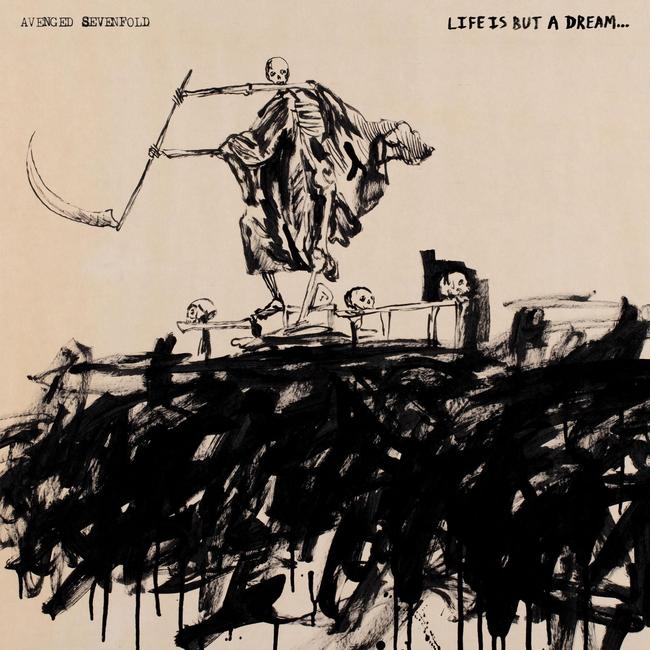
METAL
Life is But a Dream …
Avenged Sevenfold
Warner Music
“I know that it might sound crazy,” wails vocalist M. Shadows on Mattel, track two on Avenged Sevenfold’s eighth studio album. That comes, mind, after an opener that begins on flamenco guitar before nosediving into Bad Religion-style melodic punk and detouring again into Mellotron-lead balladry. In short: saying it might sound crazy is like Tony Montana saying he might do cocaine. Things stay about as messily unorthodox for the rest of this 53-minute smash-cut, with the US band careening into everything from industrial to Gregorian monk chants. What on earth is Avenged Sevenfold trying to achieve here? 20-plus years in, album No.8 feels like the musical equivalent of a midlife crisis. It’s certainly not a boring record by any stretch of the imagination, but this complete lack of creative focus is far more perplexing than it is entertaining. Having dozens of ideas is one thing; it’s another entirely to make sure at least a few of them are actually good.
David James Young

ROCK/COUNTRY
Weathervanes
Jason Isbell & The 400 Unit
Spunk! Records
Jason Isbell is one of the great American storytellers, addressing societal ills in the context of his own life and those of others he observes. The Alabamian’s eighth album (with or without his ace band the 400 Unit), intentionally blurs the lines between fiction and lived experience as its subject matter is often dark: a lover’s mental illness (Death Wish), opioid addiction (King of Oklahoma), going spare in lockdown (Middle of the Morning), reconciling abortion and religion (White Beretta), school shootings (Save The World), and the drug-related death of a dear friend (When We Were Close). But it’s when Isbell lightens up that he and the 400 Unit start to soar. Cast Iron Skillet skewers the rednecks-and-racists tropes of the Deep South; This Ain’t It pillories misguided parental advice, while the closing Miles – its verses a homage to Neil Young, with Crosby, Stills and Nash-style chorus harmonies – turns the tables as a father tries to cope with his daughter leaving home.
Phil Stafford
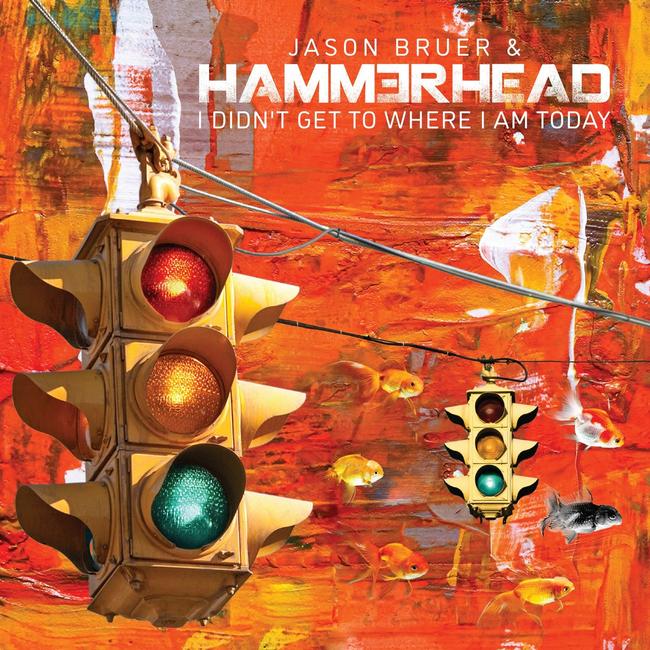
JAZZ
I Didn’t Get To Where I Am Today
Jason Bruer & Hammerhead
Independent
Unquestionably this album’s touchstone is brilliance, derived principally from Hammerhead’s great rhythm section. It’s built on the immaculate drumming of Alex Hirlian, the double bass of new recruit Dave Quinn — best-known hitherto as a member of Tom Avgenicos’s outstanding quartet Delay 45 — and the superb pianist Greg Coffin, who never fails to astound me. Their impressive playing allows three outstanding horns in the frontline to freely express themselves, so comfortably in the pocket of the rhythm section that they need only coast to produce splendid improvisations. Leader/saxophonist Jason Bruer’s 10 clever compositions, which really sing, are arranged in order to feature rich three-part harmonies, courtesy of second saxophonist Andrew Robertson, and trumpeter Simon Ferenci. This music is essentially hard-bop, now a relatively old form, but the time-feels here sound so contemporary, and are played so well, that the music here is a cut above much of what’s been previously played in this classic genre.
Eric Myers
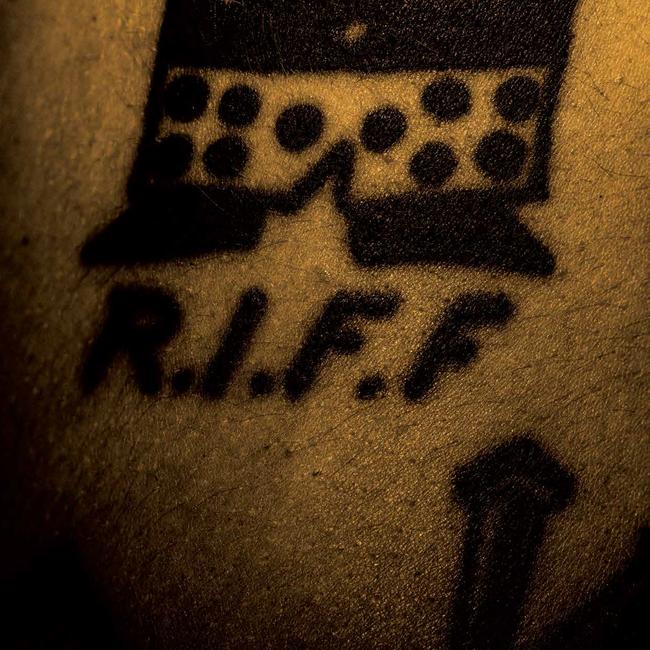
ROCK
R.I.F.F
DZ Deathrays
DZ Worldwide
Brisbane-born punk duo DZ Deathrays emerged in the mid-2000s, as part of a wave of noisy local acts signed to indie label I Oh You that quickly found national success. Now independent and operating as a trio, its sixth album in a decade comes off the back of a No.1 record, ARIA wins and plenty of laps touring the country. The demands of larger stages have pushed DZ’s production value way up to 11, and their riffs are now practically arena-sized. But the songs don’t have the same staying power this time; fun and energetic, to be sure, but mostly unmemorable. The band continues to find its happy place sandwiched between speedy riot anthems (Shadow Walk) and swaggering blues rock (My Mind Is Eating Me Alive), mixing the raucousness of Japandroids with the heft of Royal Blood. But while the sonic landscape has changed dramatically since DZ began tearing up house parties, for the most part, its output hasn’t. The formula still proves winning enough on ‘90s-inspired belters like Eat You Up or King B; what’s audibly missing, however, is the musical progression that characterised its last few records.
Jonathan Seidler
Album reviews for week of July 7 2023:
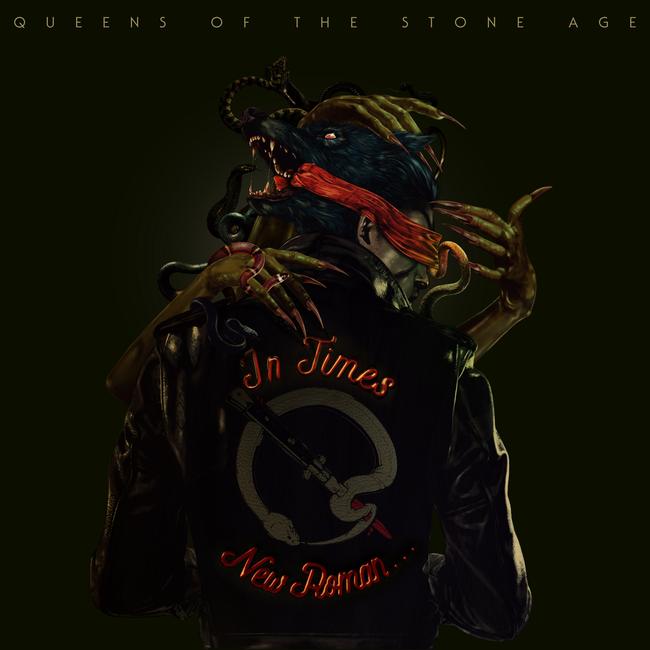
ROCK
In Times New Roman…
Queens Of The Stone Age
Matador
Josh Homme’s Queens of the Stone Age have spent the better part of the past 25 years stomping their steel-capped leather boots into a sonic desert that sits firmly left of centre. Theirs is a rarefied Death Valley that attracts both stoner-sludge diehards and FM radio rock fans, though recently the Californian band has found itself gravitating further toward the mainstream. It has scored No. 1 records both here and abroad, collaborated with Elton John, and its last release — 2017’s Villains — was produced by pop hit maker Mark Ronson. It’s been an interesting progression for a band that once featured a frequently-nude bassist and had a cult hit that repeated the names of illegal narcotics. Eighth album In Times New Roman… sees QOTSA continue to try to balance its unorthodox roots against an undeniable headliner status, but it’s the first record in a decade to get that formula right. Purists have always pointed to earlier records – culminating in 2002’s crossover smash, Songs For The Deaf – as indicative of the Queens’ signature sound, but it’s arguably the pair of albums released afterwards that truly cemented the group’s legacy. That this record has more in common with both Lullabies To Paralyse and Era Vulgaris — meatier riffs, better choruses, vocal gymnastics, tightly coiled rhythm explosions — is not an accident.
The band line-up has remained unchanged for a decade, and that stability brings with it some of the most face-melting riffage heard this side of heavy metal. The tenor is established straight out of the gate on Obscenery, a ripper tune in three parts that includes three layers of face-melting guitar and a brief appearance from an orchestra. For the most part, the album serves as a heady reminder that Homme remains the best groove merchant in the business. Tracks like Time & Place and Paper Machete are hip swivellers of the highest order, wherein his chunky lead lines are locked like glue with bassist Michael Shuman and drumming powerhouse Jon Theodore. Homme, whose vocals can sometimes feel subsumed by his own band, also shines bright. His characteristic dead-behind-the-eyes tone is noticeably more elastic and animated on cuts like Emotion Sickness, where the fun he’s having is finally palpable. Even at their most uproarious peak, QOTSA remain ready to drag listeners back into the sonic swamp for the devil’s boogie. Carnavoyeur and epic closer Straight Jacket Fitting are slow strutters that go heavy on floor toms, swing and crunch, proving that no amount of shiny plaques will ever convince this band to quit exploring the outer edges of rock ‘n’ roll.
Jonathan Seidler
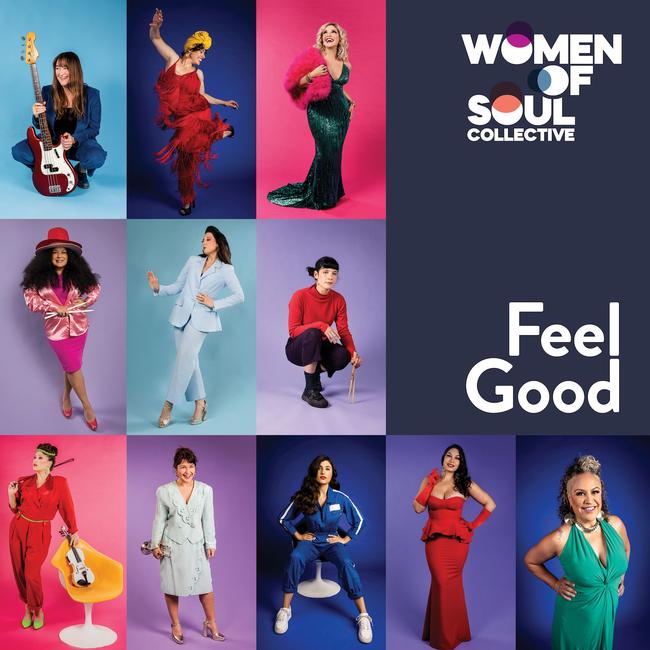
R&B/SOUL
Feel Good
Women of Soul
Independent
With Chelsea Wilson at the helm, some of Melbourne’s best R&B and soul vocalists have joined forces to create some beautiful original music under the collective Women Of Soul. In a move that hopefully sets a strong foundation for future Australian recordings of this kind, this second album was composed, recorded and produced by an all-female team. Its songs showcase the talents of powerhouse vocalists including Kylie Auldist, Stella Angelico and Carla Troiano, who each shine with rich and honeyed tones. With production handled by Anna Laverty, Feel So Good is delivered with precision and gorgeous depth. Singles Lifeline and I Am Enough represent the dynamism of the album, while also providing a gateway to a collection of influences that pull from the realms of disco and blues, while fusing genre traditions with contemporary flair. The vocalists all find their space to lead – a tough task when dealing with a stellar line-up such as this. Rather than competing, the strong cast of singers balances and uplifts one another.
Sosefina Fuamoli
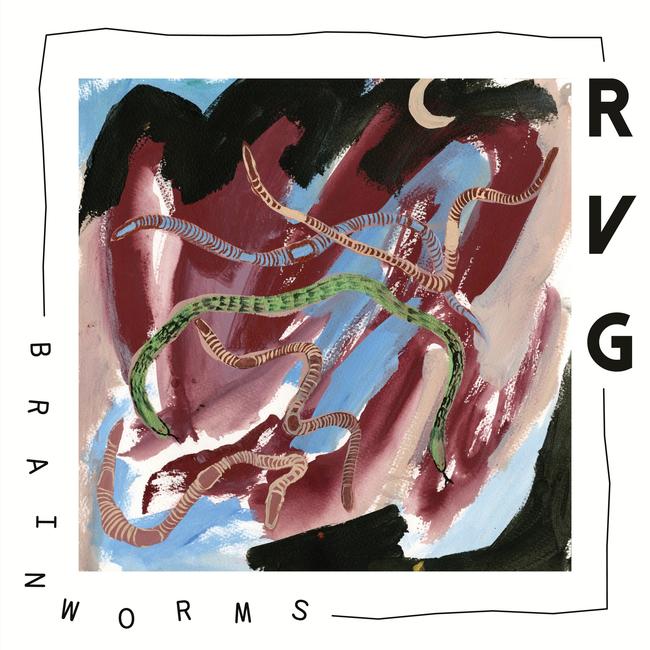
ROCK/POP
Brain Worms
RVG
Ivy League
RVG’s songs feel more accessible than ever before on the Melbourne quartet’s third album. Although the standout Midnight Sun is still gripped with ferocity, the bulk of Brain Worms graduates from the harried post-punk of the band’s earlier work to a cleaner, more open sound. There have always been elements of classic pub rock in RVG, but that timeless melodicism intensifies here without eclipsing the band’s moodier turns. Singer/guitarist Romy Vager continues to mingle romance and rancour in her lyrics and vocals alike, and yet even such scathing refrains as “You’re the reason I can’t have nice things” are delivered from a mellower, more grounded place. More than once, RVG’s darkly catchy guitar-pop casually spins B-movie imagery into pointed commentary: see the title track’s portrait of online conspiracy theories and the Kafka-esque transformation described in Squid, a cautionary tale about looking backwards. Especially affecting is Tambourine, an intimate recollection of grieving while in isolation.
Doug Wallen
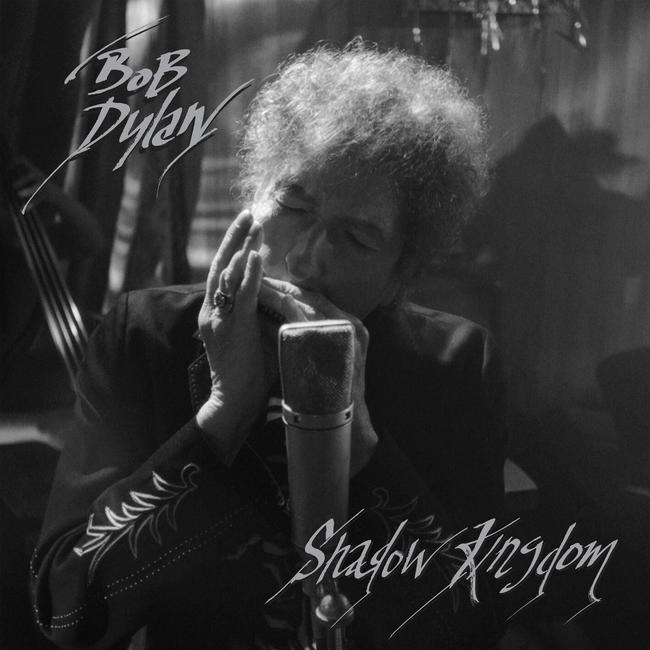
FOLK ROCK
Shadow Kingdom
Bob Dylan
Colombia
Attendees at Bob Dylan concerts over the past 25 years or so would be aware that the legendary American troubadour takes considerable pleasure in re-inventing songs from his incomparable back catalogue. On Shadow Kingdom, His Bobness turns a fistful of numbers from his 1960s albums on their heads with arrangements so fresh they can be identified by lyrics alone. Classics such as I’ll Be Your Baby Tonight and It’s All Over Now Baby Blue arguably don’t derive much benefit from radically different rhythmic approaches. Forever Young, which has become the octogenarian’s de facto anthem, remains mercifully true to the original with Dylan seemingly savouring the sound of his immortal lyrics. Indeed, the old groaner’s voice is more expressive and mellow than it’s ever been, positively playful in the opening re-make of When I Paint My Masterpiece and suitably tender in a lovely take of Queen Jane Approximately. The decision to record without drums and accent Dylan’s melodies with, primarily, accordion and various guitars was a masterstroke.
Tony Hillier
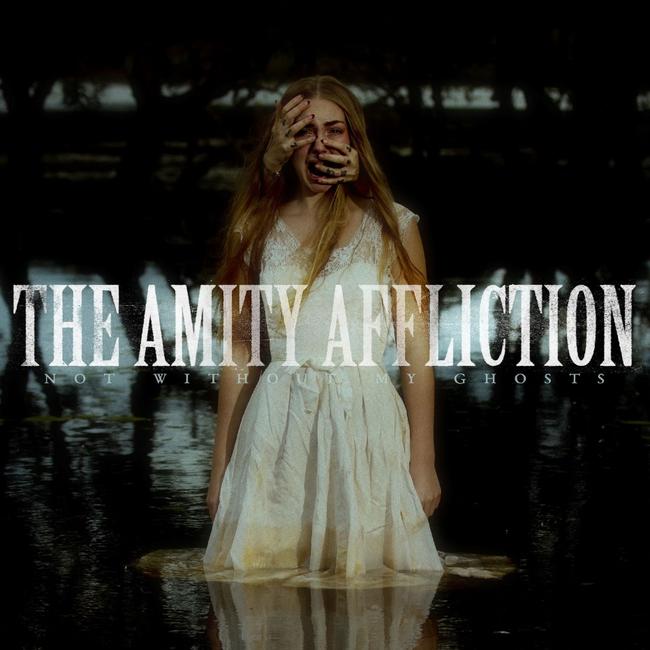
METALCORE
Not Without My Ghosts
The Amity Affliction
Pure Noise
After almost 20 years, Queensland-born band The Amity Affliction finds itself at a curious impasse. Down one path, it ventures back to the heaviness of early records; down another, it pursues the rabbit hole of slicker, more pop-oriented sounds. Committing to either, however, runs the risk of alienating specific patches of its considerable fanbase. On eighth album Not Without My Ghosts, it’s apparent the metalcore veterans have attempted to please everybody – and the result is a collection that will leave listeners nonplussed at best. For whatever reason, the musicians cannot seem to get on the same page for more than a moment or two. Seventh track The Big Sleep comes close, with a strong vocal showing and a mix of the band’s idiosyncratic melodrama with metallic heaviness. Elsewhere, however, inconsistency leaves many tracks feeling unglued: Fade Away begins promisingly with a fiery guitar riff before vocalist Joel Birch fumbles the play with his sub-par screaming. If Amity can’t decide what kind of band it wants to be in 2023, how can it expect anyone to be invested?
David James Young
Album reviews for week of June 30 2023:
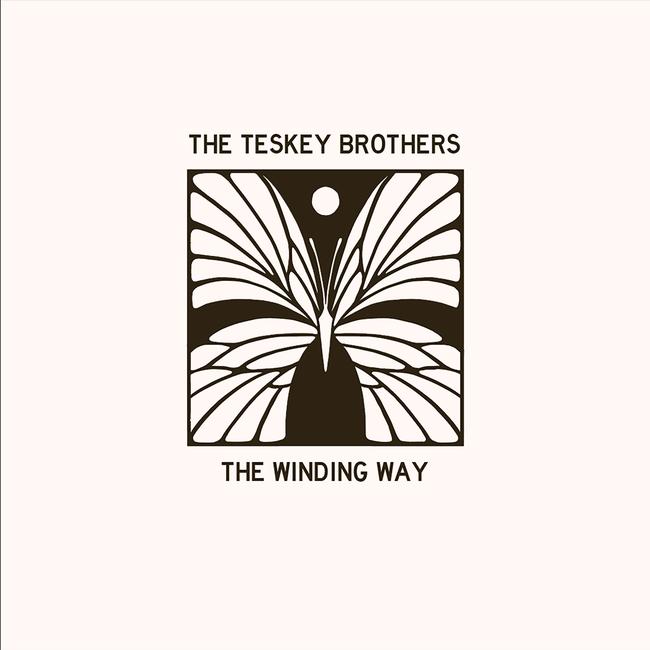
BLUES ROCK
The Winding Way
The Teskey Brothers
Ivy League Records
It’s during the bluesy gospel freakout of closing number What Will Be that one grasps the scope of what The Teskey Brothers have achieved with their third album: vintage musical prowess fused effortlessly with modern pop sensibilities. Leaning more than ever on their 1960s and 70s soul influences, the Warrandyte siblings – backed by an excellent cast of musicians – have produced one of the great Australian blues rock ‘n’ roll records in recent memory. Key to their achievement is the restraint exhibited throughout these 10 songs. Opening number I’m Leaving sets the mood straight away, with the cozy, fireside atmosphere enhanced by warm instrumental arrangements, and the husky crooning of Josh Teskey, who turns in the best vocal performance of his career with enviable ease. From the stomping blues pop of London Bridge to ballads Blind Without You and Remember the Time, Josh’s performance evokes the emotional power of past troubadours Sam Cooke and B.B. King. The Winding Way certainly isn’t a sonic departure from the brothers’ previous records. The jazzy grooves and bluegrass spirit that established their profile worldwide are still centre stage. Even the addition of electronic pop maestro Eric J Dubowsky (Flume, Chet Faker) in the producer’s chair doesn’t muddy the waters of the band’s sound; rather, the slightest amount of polish and contemporary slickness is added to an otherwise firmly analogue listen.
However, the impact of jumping from being a beloved local act at The Corner Hotel to worldwide touring staples doesn’t go unnoticed. The horn lines are more sophisticated, the songwriting more adventurous, and the band’s melange of styles more exaggerated. However, certain musical traditions remain. One highlight is a cover – a bluesy take on This Will Be Our Year by British rockers The Zombies – which keeps alive the increasingly lost art of re-imagined standards being added to modern LPs. Across the board, it’s hard to find a fault in The Winding Way. Few bands are able to re-purpose such undeniably “vintage” sounds without coming across as imitators at best. Yet, as the final strains of What Will Be die – a track where the instrumentalists finally cut loose and blow off some steam – everything sounds as distinctly appropriate for festival main stages in 2023 as it would be in a smoky soul or jazz club five decades ago. On this work, Josh and Sam Teskey have done a wonderful job of paying homage to a bygone era of music while simultaneously adding a new chapter to the great Australian songbook.
Alasdair Belling

POP
Gag Order
Kesha
Kemosabe
How do you solve a problem like Kesha? Her first two albums were forged alongside Dr. Luke, a producer with whom she’s now in a drawn-out legal battle, retroactively tainting their hard-partying fun. Her two albums since then, however, have been frustratingly inconsistent. For every flash of brilliance and sonic evolution, there were mutant regressions into her past self. Where to next? Gag Order begins in a truly promising manner, forging into dark electronica and hypnotic mantras on the arresting Something To Believe In and Eat The Acid. If the album followed suit, it could’ve been her best yet. Unfortunately, Kesha seemingly had other plans, and lots of them. Only Love Can Save Us Now is a total stylistic mess, ramming a bootleg copy of Beyonce’s Formation into an unsuspecting gospel choir, while The Drama attempts artful experimentation with a layered finale that ends up nigh-on unlistenable. Despite wanting Kesha to succeed on her own terms, it’s scarily starting to feel like self-sabotage.
David James Young
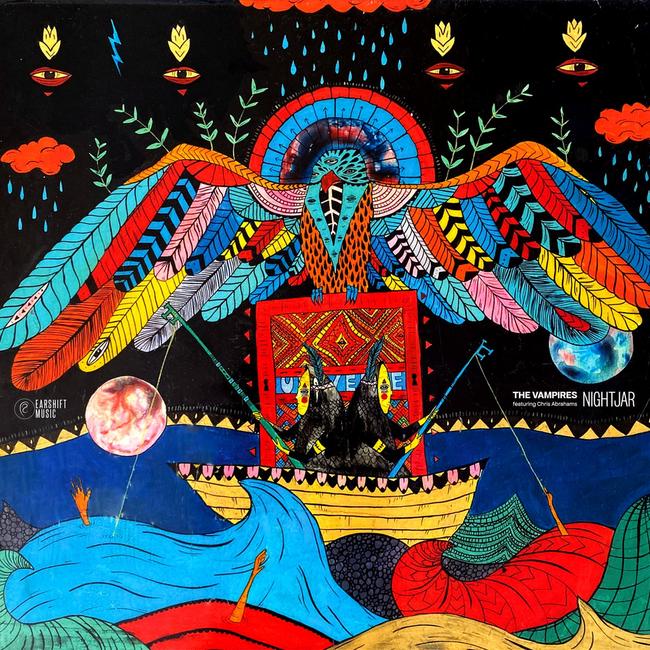
JAZZ
Nightjar
The Vampires & Chris Abrahams
Earshift Music
The Vampires, a brilliant pianoless quartet, have been highly successful for almost 20 years without a chordal instrument. Perhaps they never needed one. Still, with Nightjar, they have plugged the gap, and benefit immeasurably. One might ask unkindly: what took them so long? Chris Abrahams, on various keyboards here, is not just another pianist; he’s one of our greatest improvising musicians. In one fell swoop, two of the strongest forces in Australian jazz, both of whose music is drenched in melodic beauty, are joined, creating what is palpably a masterpiece. The trumpet/saxophone combination of Nick Garbett and Jeremy Rose is overwhelmingly atmospheric and ruminative, particularly when Rose is on bass clarinet; the groove-based time-feels created by bassist Noel Mason and drummer Alex Masso are nuanced and infectious; and the deceptively simple compositions by Garbett and Rose, based on familiar riffs, are a perfect springboard for the creativity of Abrahams.
Eric Myers

ROOTS
Jen Mize and the Rough N’ Tumble
Jen Mize and the Rough N’ Tumble
Pathfinder Music
Gifted US-born, Queensland-based vocalist Jen Mize has sung with the Duke Ellington Orchestra and Mary Wilson, of the Supremes, but may yet become best-known for fronting the eight-piece Rough n’ Tumble, who recently won a Queensland Music Award for the year’s best blues and roots song. All Riled Up is one of 10 tracks in this set, all composed or co-written by Mize, with subject matter ranging from lust, trust and hedonism to religion, rage and gun culture. Among the slinky funk, Americana and blues-rock, the centrepiece is Bukowski, its title referencing gritty 20th century American writer Charles B. and his infamous aphorism, “Find out what you love and let it kill you”. Mize wrenches every last drop of emotion from her song, its sparse elegance emblematic of a big band that favours space over sparring. Dual lead guitarists Jeremy Edwards and Mitch Power make each brief but blazing solo count, while horn players Tristan Rogers (trumpet) and Matt Luff (sax) also maximise their cameos, with keys player Andy Shrav underpinning almost every track on this auspicious debut.
Phil Stafford
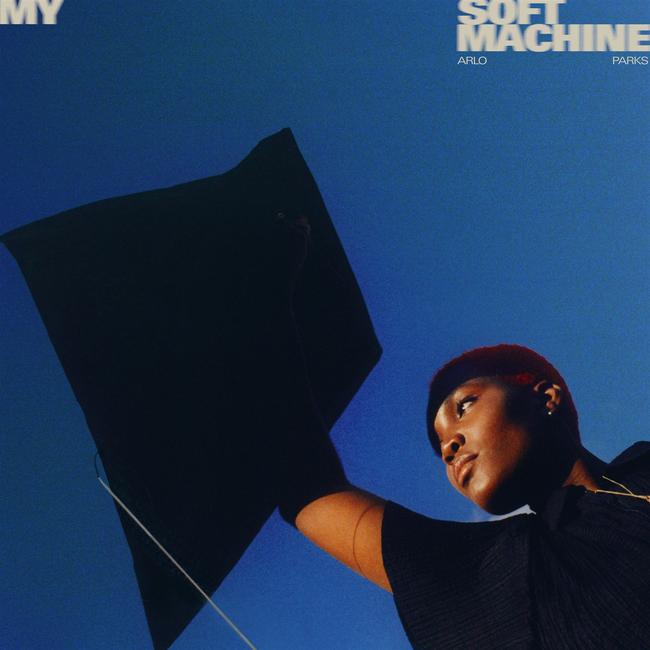
ALTERNATIVE
My Soft Machine
Arlo Parks
Transgressive
As London’s Arlo Parks was putting the finishing touches on her debut record, the world shut down. For most artists, the pandemic years were full of angst and lost revenue, but not Parks. Designed for private listening, her intimate, trip-hop-inflected ballads wrapped generational malaise, depression and queer longing into an unpredictably unbeatable package. When the world reopened she toured extensively, but the whiplash of moving from bedroom bard to headline performer is palpable on her second album, chiefly in the style of production. The drums are bigger, the expansive grooves more insistent; there are even deviations into shoegaze-style guitars on Devotion. It’s the sound of a confessional artist wrestling with a new expectation to be a preacher – and it doesn’t always work, particularly on the back third of the album. Parks is at her best inside the close embrace of good headphones, where her smooth soprano and penchant for poetry dazzles. Lyrically, she remains one of the most powerful voices out there but now, for the first time, she’s overpowered by her own music.
Jonathan Seidler


To join the conversation, please log in. Don't have an account? Register
Join the conversation, you are commenting as Logout